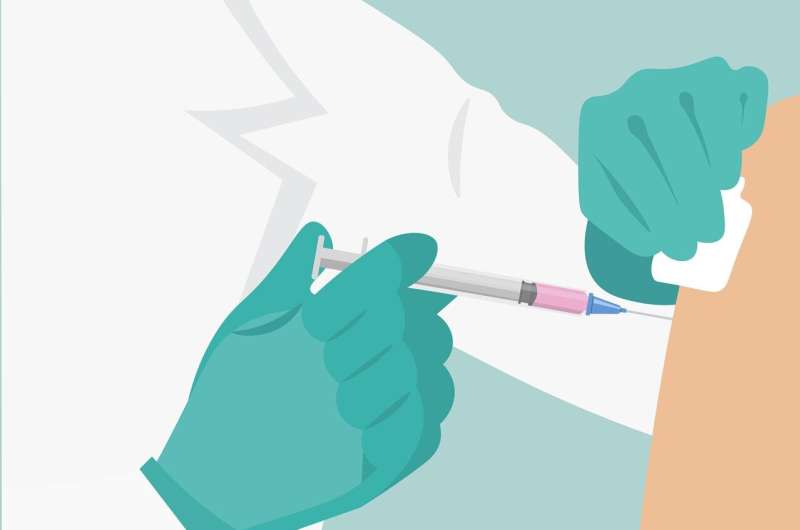Credit: Pixabay/CC0 Public Domain
Q: When should my kids get their COVID-19 booster?
A: Vaccines are our best hope to end the COVID-19 pandemic. A vaccine now is available for children ages 5 and up, and boosters have been authorized for some older children. Clinical trials are under way for a vaccine for children ages 6 months to 4 years.
Research shows the COVID-19 vaccines are remarkably effective and safe. The AAP urges children and adults to get the COVID-19 vaccine and booster as soon as they are eligible. Being vaccinated and boosted is especially important now with the rise in cases caused by the delta and omicron variants of the virus. More contagious strains can spread quickly and infect more children. Anyone who is eligible should get the vaccine that is available to them. COVID-19 vaccines are free, whether or not you have health insurance. Right now, the only COVID-19 vaccine available for children in the U.S. is the Pfizer BioNTech mRNA vaccine. Two separate doses are given 21 days apart. The COVID shot for children 5 years to 11 years of age is a lower dose than the dose recommended for people 12 years and older.
Who can get the third shot of the vaccine:
— Those ages 16 and older: Federal health officials authorized a booster dose for adolescents ages 16 years and up. Anyone 16-17 years old who got two doses of the mRNA COVID vaccine is strongly encouraged to get a booster dose of the mRNA COVID vaccine that is recommended for their age. The booster dose should be given at least six months after they completed the primary series.
— Adolescents ages 12 and up with certain health conditions: For kids age 12 years or older who have weakened immune systems, a third dose already is recommended as part of the primary series. The third dose is to help them develop as much protection as possible against SARS-CoV-2, the virus that causes COVID-19.
The third dose in the primary series is recommended for those who meet one of the following criteria:
— Are undergoing active cancer treatment for tumors or cancers of the blood
— Received an organ transplant and are taking medicine to suppress the immune system
— Received a stem cell transplant within the last two years or are taking medicine to suppress the immune system
— Have hereditary or genetic conditions that cause moderate or severe immunodeficiency
— Have advanced or untreated HIV infection
— Are taking high-dose corticosteroids or other drugs that may dampen their immune system response You also should make sure your children are caught up on their vaccinations against measles, influenza, whooping cough, and any others that your pediatrician recommends.
If your child has an active COVID-19 infection, they should wait to get vaccinated until they've recovered. They should also follow the recommended isolation period first. This also applies to children who become infected with COVID-19 between their first and second dose of vaccine. Before COVID-19 vaccines become available for children under age 5, clinical trials need to be completed. This is to ensure they are safe and effective for these age groups. Children are not little adults; we can't just assume a vaccine will have the same effect on a child as it does for someone older.
One thing is certain: COVID-19 vaccines are preventing severe illness, hospitalization, and death for hundreds of millions of U.S. adults and adolescents who've received them already. We look forward to the day when our youngest children can get the vaccines, too, so they can safely take part in the activities they may have missed out on.
©2022 Tribune Content Agency, LLC.






















